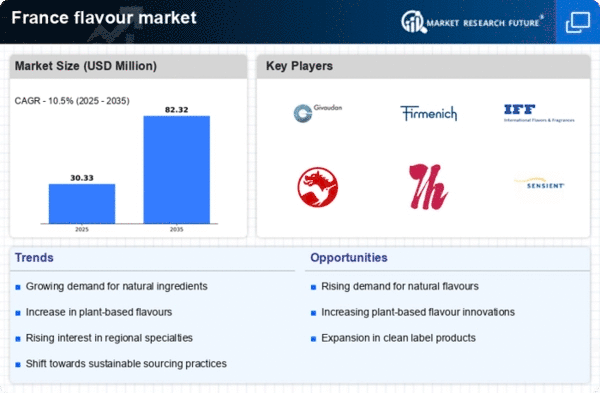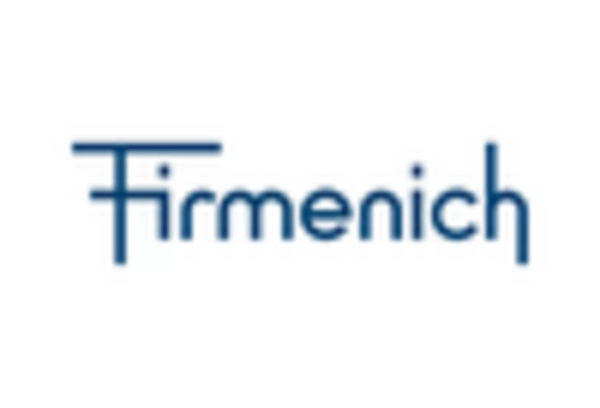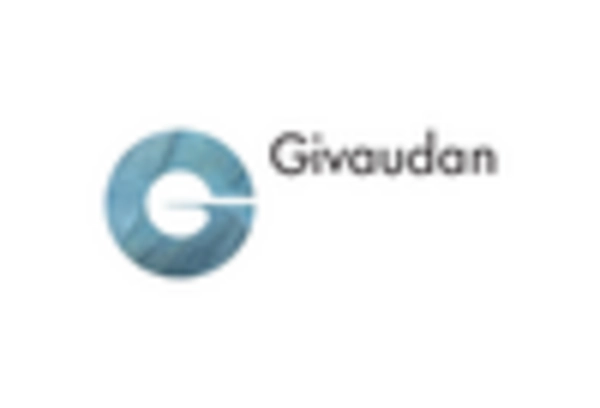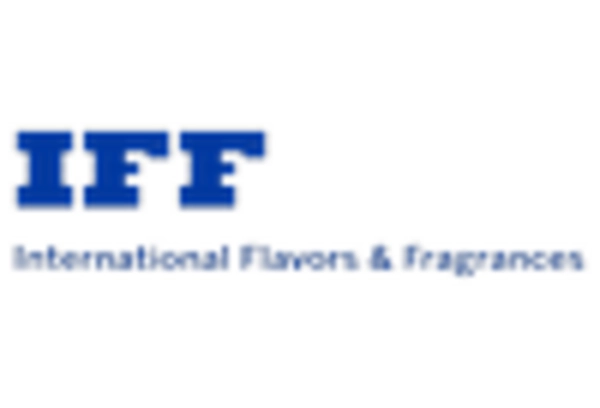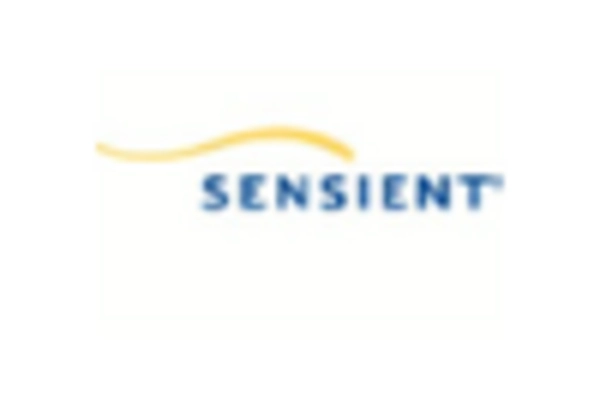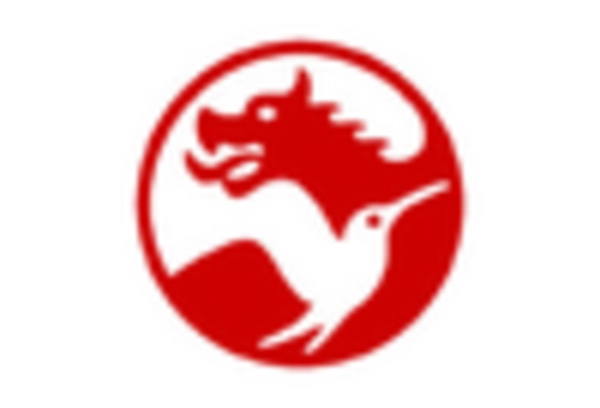Rising Health Consciousness
The increasing awareness of health and wellness among consumers in France appears to be a pivotal driver for the flavour market. As individuals become more health-conscious, there is a noticeable shift towards products that offer natural and organic flavours. This trend is reflected in the market, where the demand for clean-label products has surged, with approximately 30% of consumers actively seeking out items free from artificial additives. The flavour market is adapting by innovating and reformulating products to meet these preferences, thereby enhancing their appeal. Furthermore, the rise of health-focused diets, such as veganism and gluten-free lifestyles, is influencing flavour profiles, pushing manufacturers to explore new, healthier options. This evolving landscape suggests that the flavour market must remain agile to cater to the changing tastes and preferences of the health-conscious consumer base.
Regulatory Changes and Compliance
Regulatory changes in food safety and labelling are influencing the flavour market in France. The introduction of stricter regulations regarding food additives and flavouring agents necessitates that companies within the flavour market adapt their formulations to comply with these standards. This has led to an increased focus on transparency and traceability in ingredient sourcing. Companies are now required to provide detailed information about the origins and safety of their flavouring agents, which may impact production costs and processes. As a result, businesses that proactively embrace these regulatory changes are likely to gain a competitive edge, while those that fail to comply may face significant challenges. The flavour market must navigate this complex regulatory landscape to ensure product safety and consumer trust.
Growing Demand for Plant-Based Products
The surge in demand for plant-based products is reshaping the flavour market in France. As consumers increasingly adopt vegetarian and vegan diets, the need for flavours that complement these products has intensified. The flavour market is responding by developing a wide array of plant-based flavours that enhance the taste of meat alternatives and dairy substitutes. Recent data indicates that the plant-based food sector is projected to grow by over 20% annually, driving the need for innovative flavour solutions. This trend not only reflects changing dietary preferences but also highlights the importance of sustainability in food production. Consequently, the flavour market is likely to see a continued emphasis on natural, plant-derived flavours that align with the values of environmentally conscious consumers.
Cultural Influences on Flavour Preferences
Cultural diversity in France plays a crucial role in shaping flavour preferences within the flavour market. The country's rich culinary heritage and multicultural population contribute to a wide array of taste profiles that consumers seek. This cultural influence encourages the flavour market to explore and incorporate diverse flavours that resonate with various demographic groups. For instance, the popularity of Mediterranean and Asian flavours has surged, reflecting the growing interest in global cuisines. This trend suggests that companies must remain attuned to cultural shifts and consumer preferences to effectively cater to the evolving palate of the French market. By embracing this cultural dynamism, the flavour market can create products that not only satisfy taste but also celebrate the diverse culinary landscape of France.
Technological Advancements in Flavour Production
Technological innovations in flavour production are significantly impacting the flavour market in France. Advances in extraction and synthesis techniques have enabled manufacturers to create more complex and appealing flavour profiles. For instance, the use of biotechnology in flavour development allows for the creation of unique taste experiences that were previously unattainable. This has led to a diversification of offerings within the flavour market, as companies leverage these technologies to differentiate their products. Additionally, the integration of artificial intelligence in flavour formulation is streamlining the development process, reducing time-to-market for new flavours. As a result, the flavour market is witnessing an influx of innovative products that cater to diverse consumer preferences, potentially increasing market share and profitability for forward-thinking companies.


